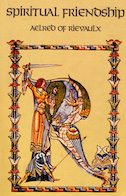Friendship
 Friendship has been cheapened. Though we have seen no drastic shift in our lifetime I am convinced that we find ourselves in a generally negative trend with regards to friendship. The tragedy of this trend goes further than losing the richly significant role friendship once played in human life and flourishing, for I believe Christians have lost sight of the crucial role deep friendships play in discipleship and spiritual growth. The cheapening of friendship as an integral part of all of human life, and specifically Christian life, needs assessment and I hope to convince you to revaluate your own understanding of friendship in this brief post.
Friendship has been cheapened. Though we have seen no drastic shift in our lifetime I am convinced that we find ourselves in a generally negative trend with regards to friendship. The tragedy of this trend goes further than losing the richly significant role friendship once played in human life and flourishing, for I believe Christians have lost sight of the crucial role deep friendships play in discipleship and spiritual growth. The cheapening of friendship as an integral part of all of human life, and specifically Christian life, needs assessment and I hope to convince you to revaluate your own understanding of friendship in this brief post.
Defining friendship
Defining friendship is not a simple task. Biblical reference to it is thin and we have largely lost touch with the fullness and rich appreciation many cultures throughout history have attributed to it. A great place to start is to point out that the Christian God – Father, Son and Holy Spirit – has never known anything less than perfect other-person centeredness as Trinity. Our God is relational; his fundamental nature consists of personal intimacy and communion. As Christoph Schwöbel writes in his essay Recovering Human Dignity, the imago Dei means human relationality is explained by the relationality of God. Adam's intensely relational capacity sheds light on how it was possible for him to be in a ‘not good’ condition when he walked Eden with his Creator. Because we are created in the image of our God we are created with the need for intimate and self-giving relationships.
 I do not think that this deep and other-person centred intimacy should be limited to marriage, as many tend to do today. In 1 Samuel 18:1 and Deuteronomy 13:6 we are given a vivid description of friendship as ‘souls knit together.’ Michael Haykin comments that this metaphor says friends are intimate companions to each other’s innermost thoughts and feelings, bearing ideas of strong emotional attachment and loyalty. We are so caught up with the “one flesh” of Genesis 2:24 that we completely overlook the knitting of souls in holy and spiritual friendship. I love how this metaphor in some ways reflects the Trinitarian nature, for there is plurality and oneness, merged yet distinct persons. Despite the scant references to friendship in Scripture, this description alone should enrich our impoverished definition and practice of friendship.
I do not think that this deep and other-person centred intimacy should be limited to marriage, as many tend to do today. In 1 Samuel 18:1 and Deuteronomy 13:6 we are given a vivid description of friendship as ‘souls knit together.’ Michael Haykin comments that this metaphor says friends are intimate companions to each other’s innermost thoughts and feelings, bearing ideas of strong emotional attachment and loyalty. We are so caught up with the “one flesh” of Genesis 2:24 that we completely overlook the knitting of souls in holy and spiritual friendship. I love how this metaphor in some ways reflects the Trinitarian nature, for there is plurality and oneness, merged yet distinct persons. Despite the scant references to friendship in Scripture, this description alone should enrich our impoverished definition and practice of friendship.
In Spiritual Friendship Aelred of Rievaulx says, “We call friends only those to whom we have no qualm about entrusting our heart and all its contents.” Friendship involves complete vulnerability, the joining of two people’s souls in a wonderful love that reflects the nature of God. I realise some readers might find this comes too close to our definition of marriage. Perhaps that is because we operate with a biblical definition of marriage but a culturally informed definition of friendship. So we limit love to romance, intimacy to physicality, and oneness to marriage. This is far from God’s intention for the gift of friendship and a misunderstanding of the imago Dei.
The purpose of friendship
1. Hedonism. As with all good things, friendship is a gift from God to be gratefully enjoyed. Though he goes on to say more, Aelred writes, “True friendship is the fruit and reward in and of itself”. Hear Augustine in his Confessions on the pleasures of friendship, “To make conversation, to share a joke, to perform mutual acts of kindness, to read together…to share in trifling and in serious matters, to disagree though without animosity…to teach each other something…to long with impatience for those absent, to welcome them with gladness on their arrival.” Furthermore, if our friendships imitated God’s Trinitarian and self-giving relationality they would provide unending joy, security, and love. Friendship is a gift from God that is entailed in the imago Dei, yet we spend most of our lives content with vague reflections of true friendship.
 2. Holiness. Moving on from the above point, friendship has to be about more than itself. Friends need a common pursuit, or shared interests and longings. We can say that there must be a shared direction. Tim Keller, in The Meaning of Marriage, writes that the best friendships are cultivated when there is something both friends are seriously committed to. To develop this point further, Aelred says that a friend desires nothing that is unbecoming and never fails to wish for what is becoming. It involves willing and not willing the same things for each other; like desires and denials. For Christian friendships, another way of putting this is the pursuit of holiness, spiritual growth and the opposition of sin. I am convinced that the greatest shared direction for any friendship is towards Christlikeness. Listen to this great quote from Gregory of Nazianzus about a close friend, “Different men have different names, which they owe to their parents or to themselves, that is, to their own pursuits and achievements. But our great pursuit, the great name we wanted, was to be Christians, to be called Christians”
2. Holiness. Moving on from the above point, friendship has to be about more than itself. Friends need a common pursuit, or shared interests and longings. We can say that there must be a shared direction. Tim Keller, in The Meaning of Marriage, writes that the best friendships are cultivated when there is something both friends are seriously committed to. To develop this point further, Aelred says that a friend desires nothing that is unbecoming and never fails to wish for what is becoming. It involves willing and not willing the same things for each other; like desires and denials. For Christian friendships, another way of putting this is the pursuit of holiness, spiritual growth and the opposition of sin. I am convinced that the greatest shared direction for any friendship is towards Christlikeness. Listen to this great quote from Gregory of Nazianzus about a close friend, “Different men have different names, which they owe to their parents or to themselves, that is, to their own pursuits and achievements. But our great pursuit, the great name we wanted, was to be Christians, to be called Christians”
3. Heaven. C.S. Lewis famously said, in The Weight of Glory, that we have never met a mere mortal. We are all eternal. Only people will last forever. The hard truth is however is that while friendship is a wonderful gift from God in the present, not all friendships will last in eternity. In Confessions, Augustine writes about a dear friend, what we might call a ‘best friend,’ who became ill and died in his twenties. Though Augustine joyfully reflects on what they had when his friend was alive, he laments what was lost: “I had poured out my soul on to the sand by loving a person sure to die as if he would never die.” He speaks of his soul being lacerated by the loss of his friend and becoming miserably inconsolable. In the post linked above I make this point: eternal friendship is only enjoyed by those who are in Christ and will be with him in glory. Friendships will tragically end on earth with death, and some will carry on into heaven. With this point we learn that friendship can be one of the most important experiences in our lives, not only because they will continue in glory but also because as Christians we can introduce others to the man who laid down his life for his friends.